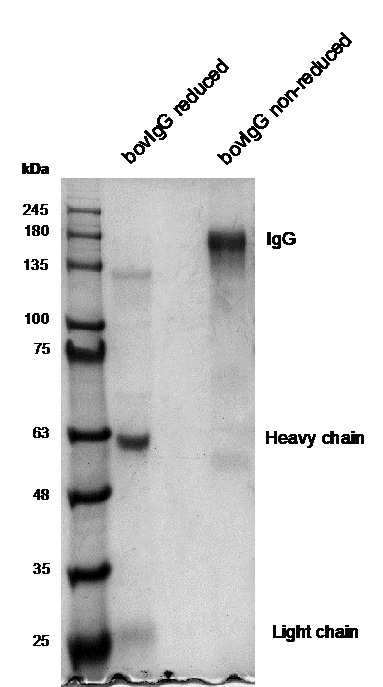
Cat. #161642
Anti-ZIP4 antibody
Cat. #: 161642
Sub-type: Primary antibody
Target: Zinc Transporter ZIP4
Class: Monoclonal
Application: Western Blottting, Immunostaining
Reactivity: Human
Host: Mouse
£300.00
This fee is applicable only for non-profit organisations. If you are a for-profit organisation or a researcher working on commercially-sponsored academic research, you will need to contact our licensing team for a commercial use license.
Contributor
Inventor: RubĂŠn Vicente, Pilar Rivera
Institute: Universitat Pompeu Fabra
Primary Citation: Li et al. 2007. Proc Natl Acad Sci U S A. 104(47):18636-41. PMID 18003899.
Tool Details
*FOR RESEARCH USE ONLY (for other uses, please contact the licensing team)
- Name: Anti-ZIP4 antibody
- Cancer: Pancreatic cancer
- Research fields: Cancer
- Clone: 33
- Tool sub type: Primary antibody
- Class: Monoclonal
- Strain: Patent protected: EP20382172A¡2020-03-10, US 17/909,885. EP3878473A1, EP21709731A, EP2021056036W.
- Reactivity: Human
- Host: Mouse
- Disease: Acrodermatitis enteropathica
- Application: Western Blottting, Immunostaining
- Description: Zinc transporter ZIP4 is a transmembrane protein which in humans is encoded by the SLC39A4 gene. ZIP4 is overexpressed in human pancreatic cancer and contributes to tumor progression by accumulation of intracellular zinc and stimulation of cell proliferation, endothelial mesenchymal transition and cancer progression.
- Isotype: IgG
Target Details
- Target: Zinc Transporter ZIP4
- Target background: Zinc transporter ZIP4 is a transmembrane protein which in humans is encoded by the SLC39A4 gene. ZIP4 is overexpressed in human pancreatic cancer and contributes to tumor progression by accumulation of intracellular zinc and stimulation of cell proliferation, endothelial mesenchymal transition and cancer progression. Thus, overexpression of ZIP4 is considered a malignant factor for pancreatic cancer progression.
Applications
- Application: Western Blottting, Immunostaining
References
- Li et al. 2007. Proc Natl Acad Sci U S A. 104(47):18636-41. PMID 18003899.


